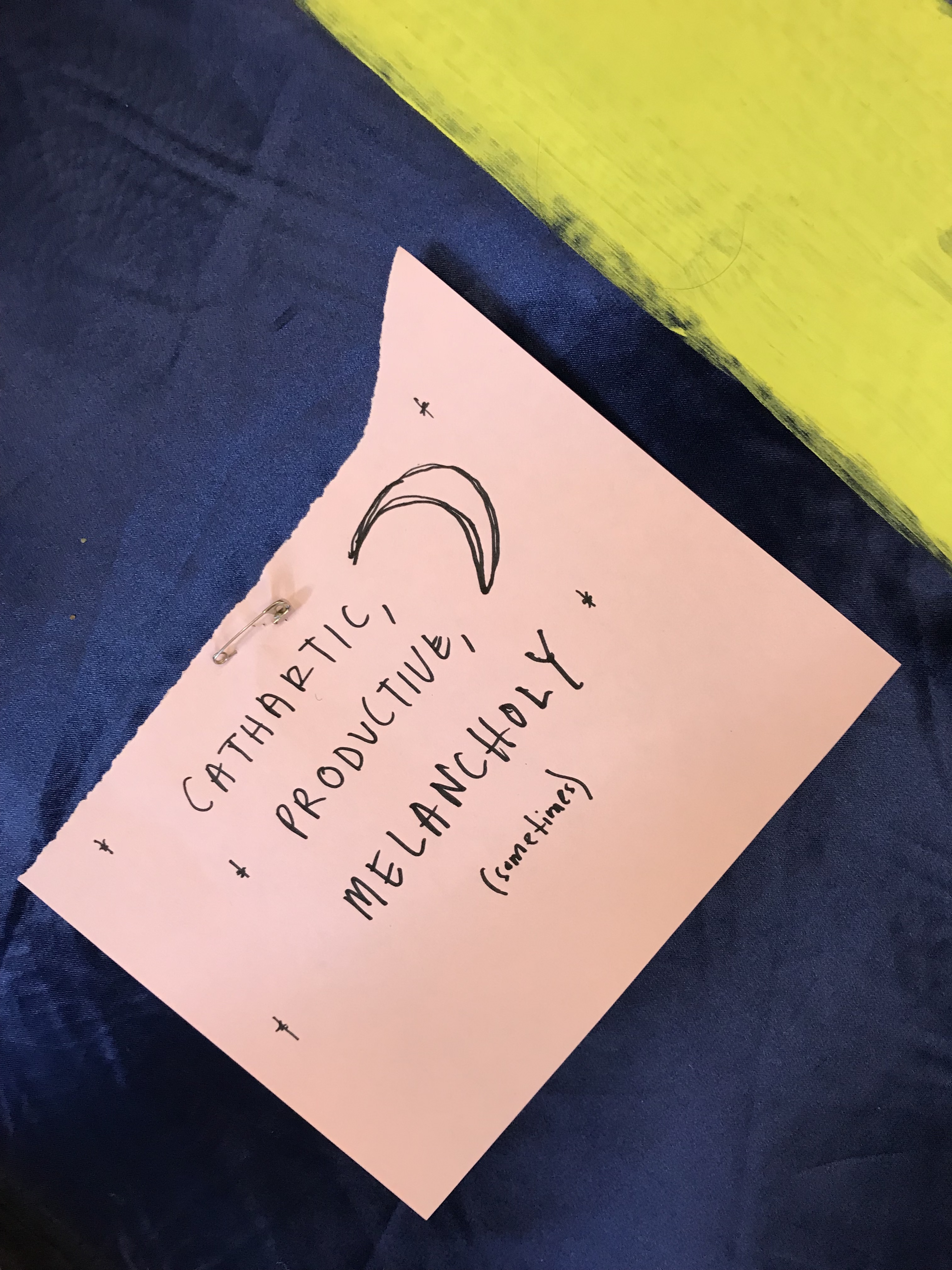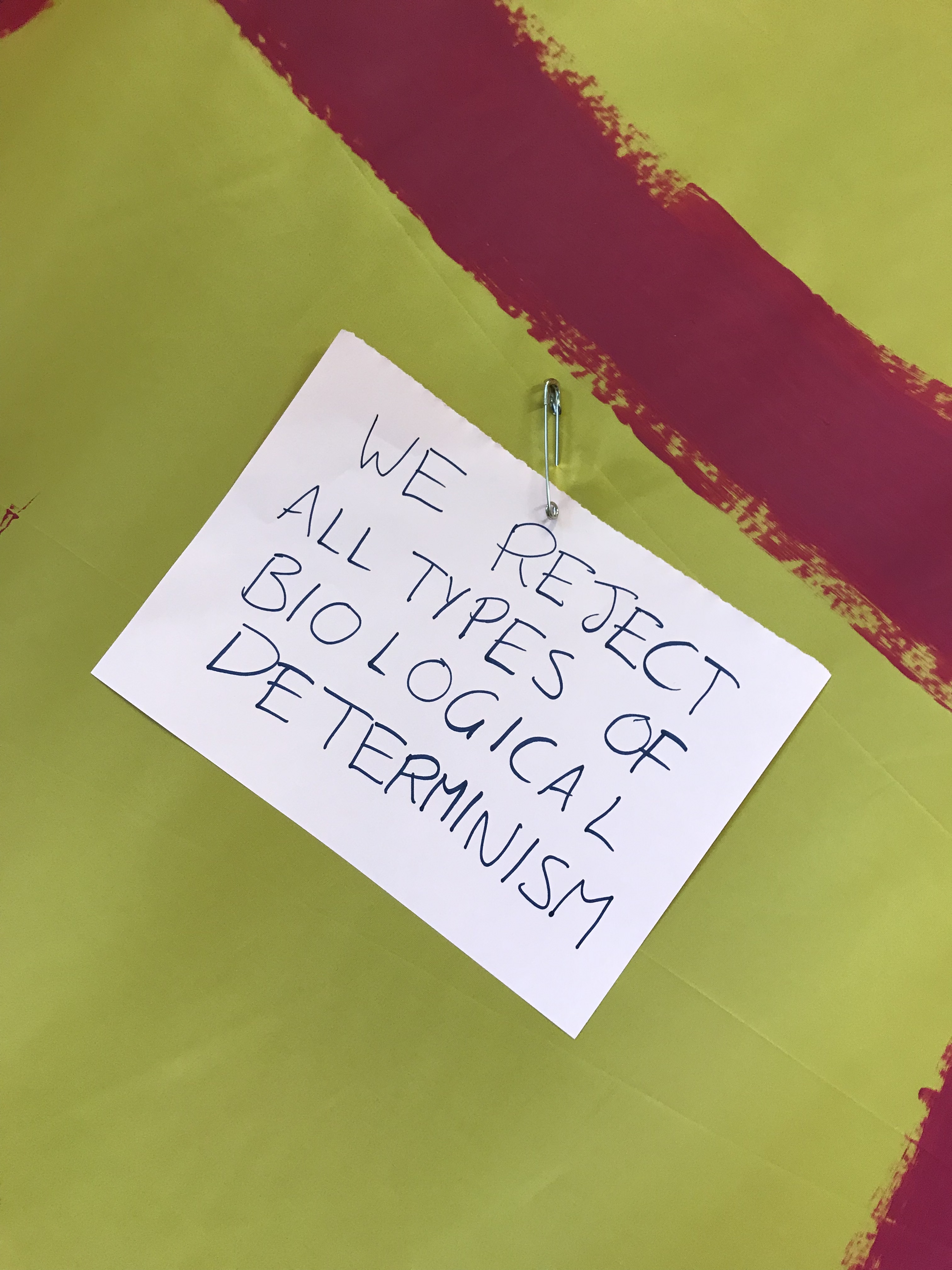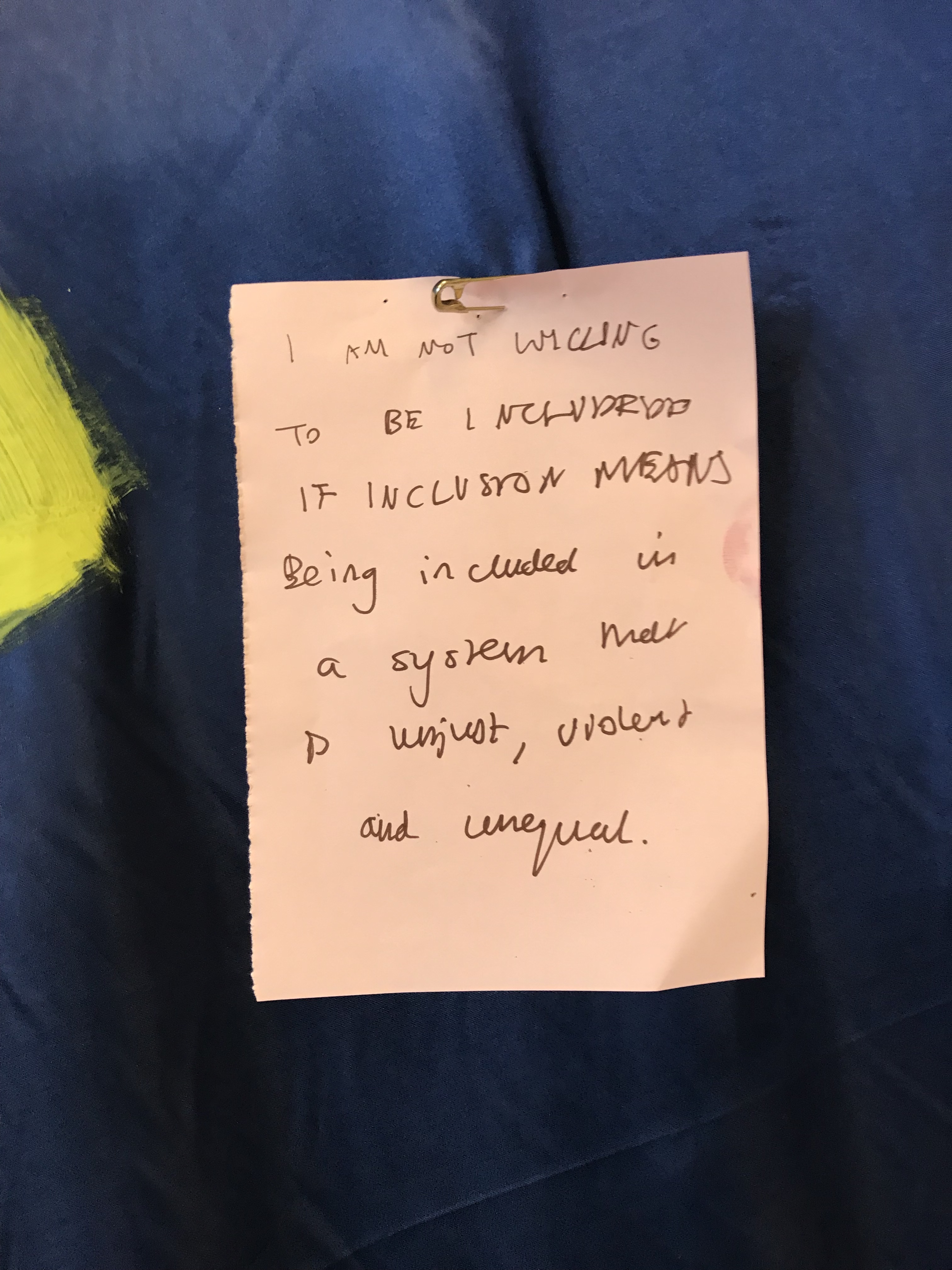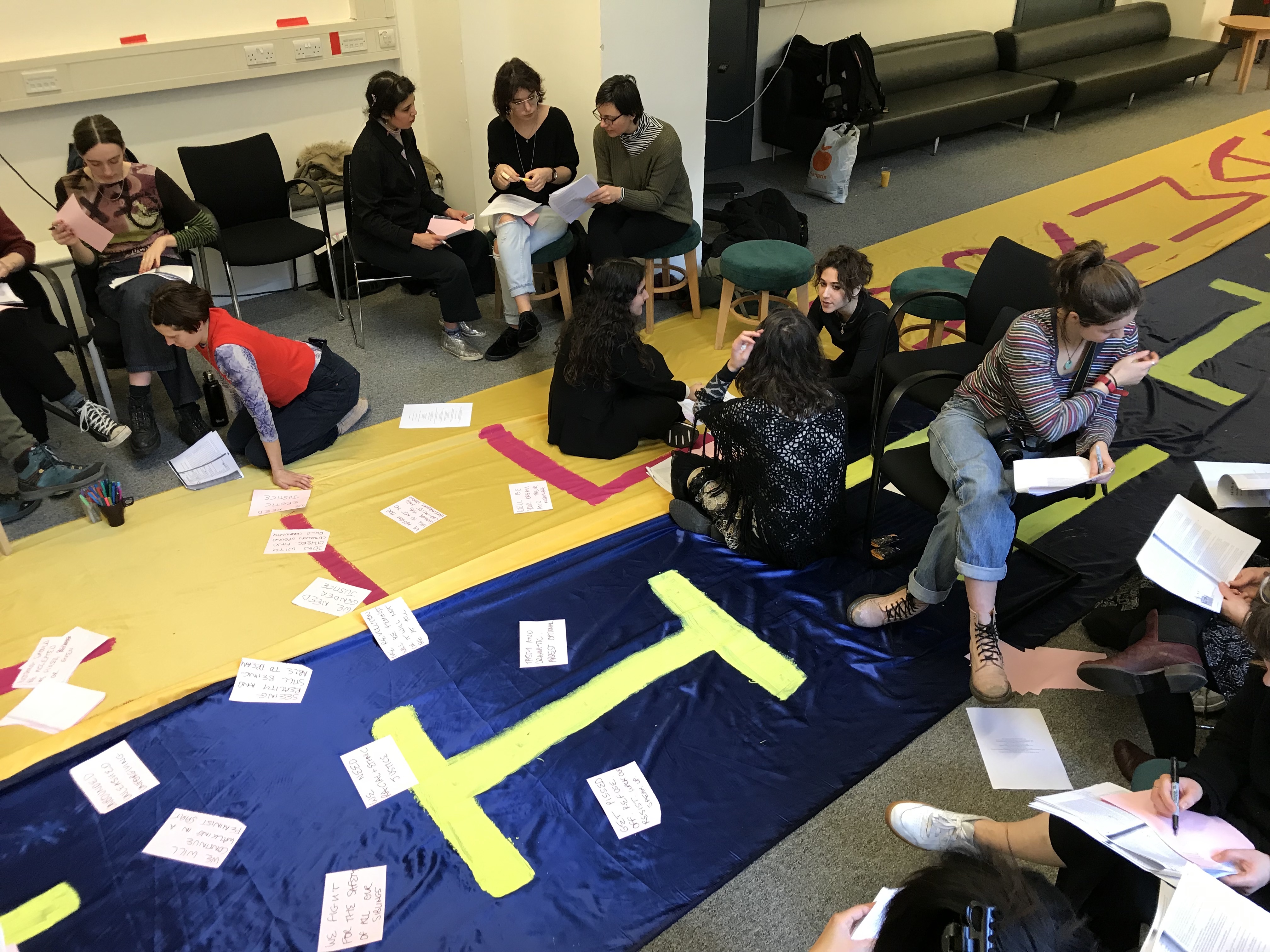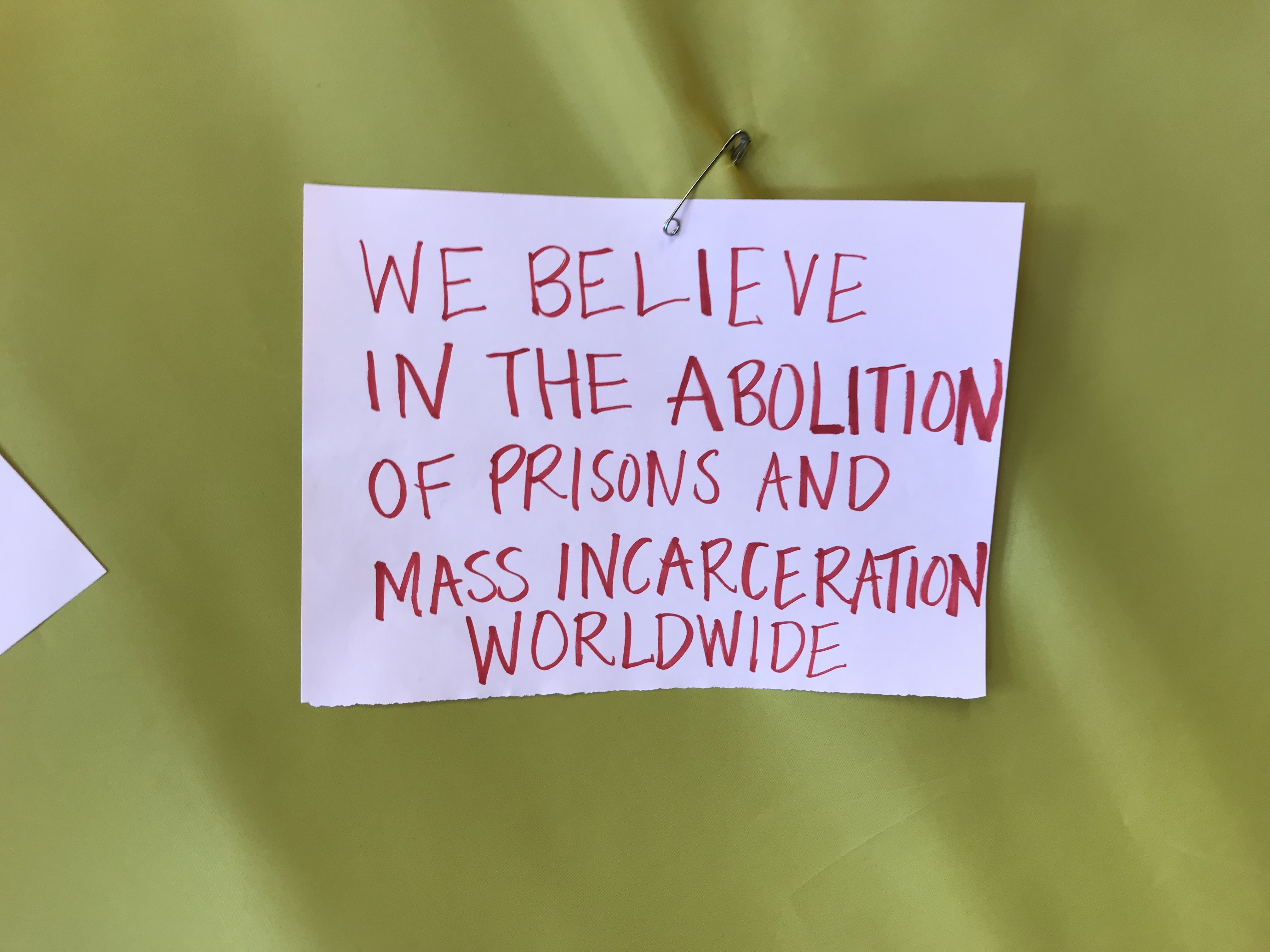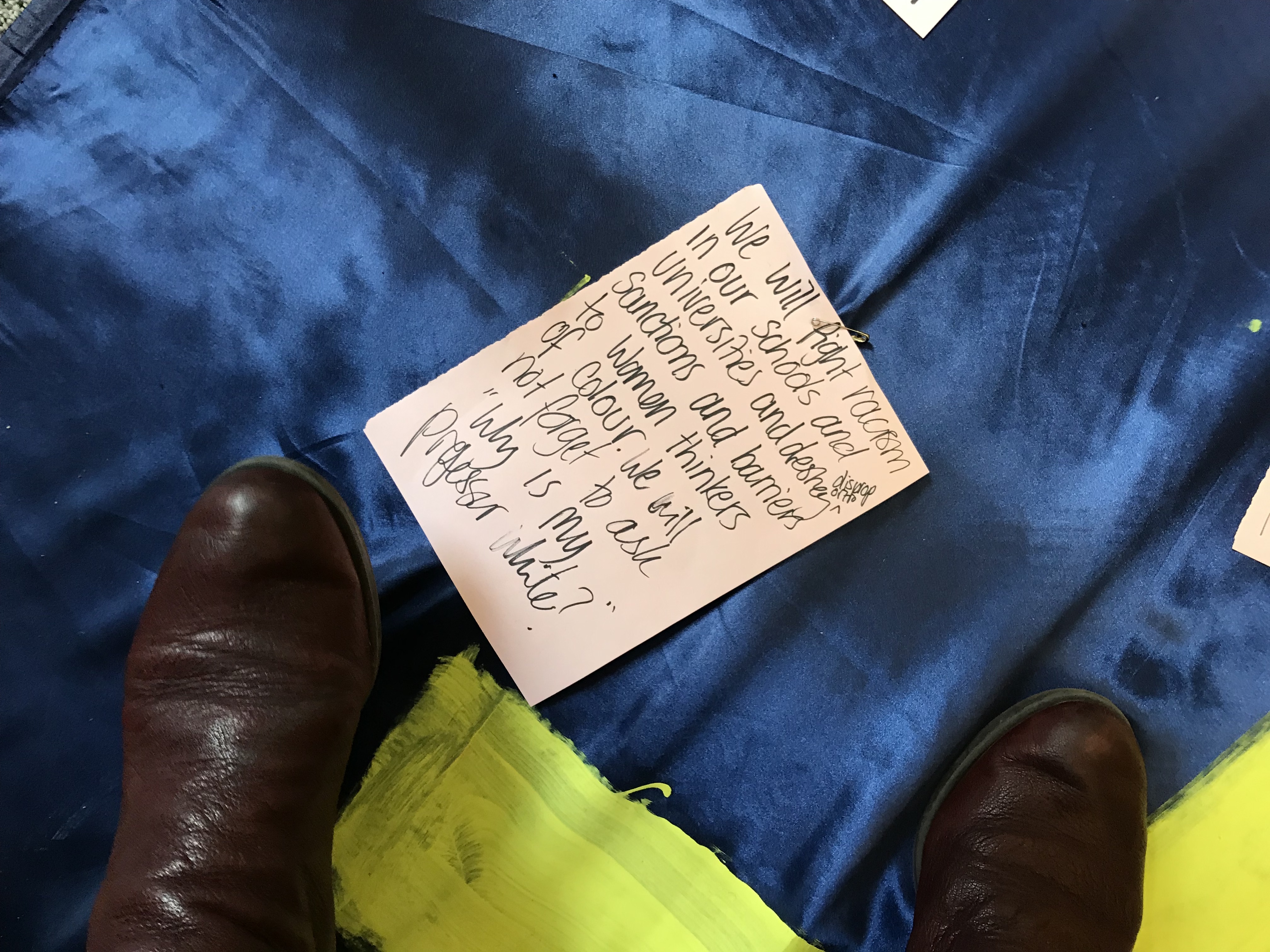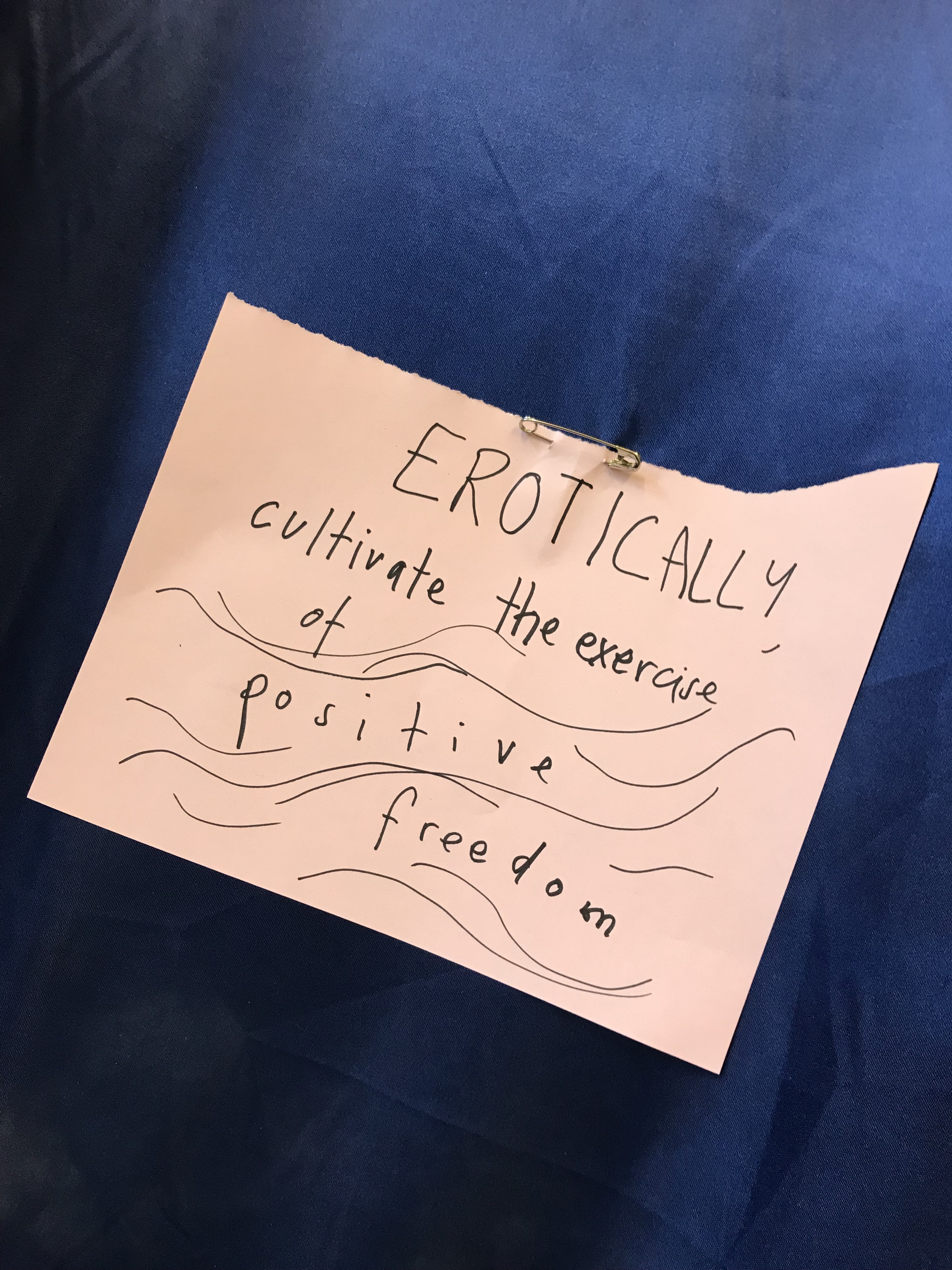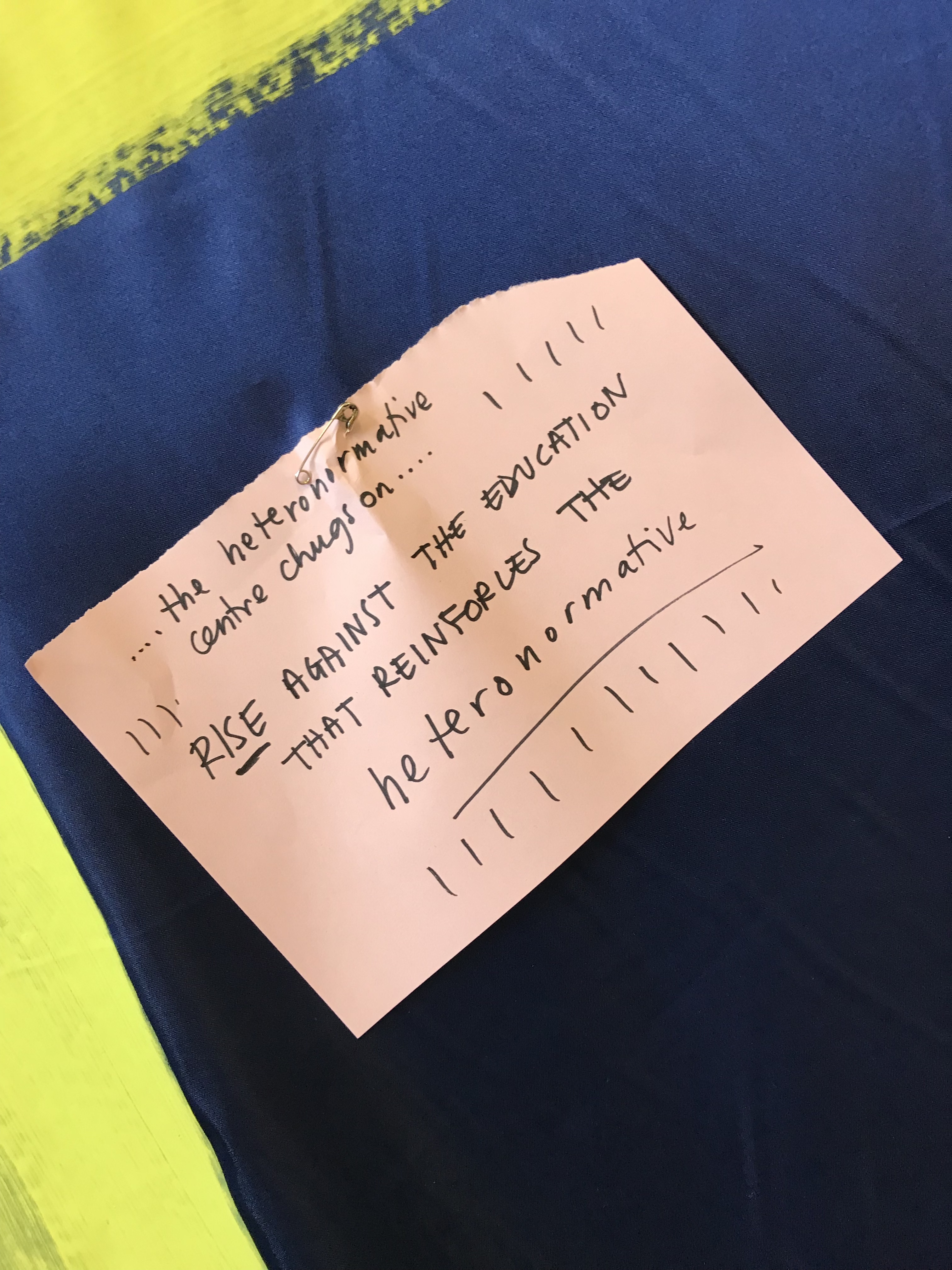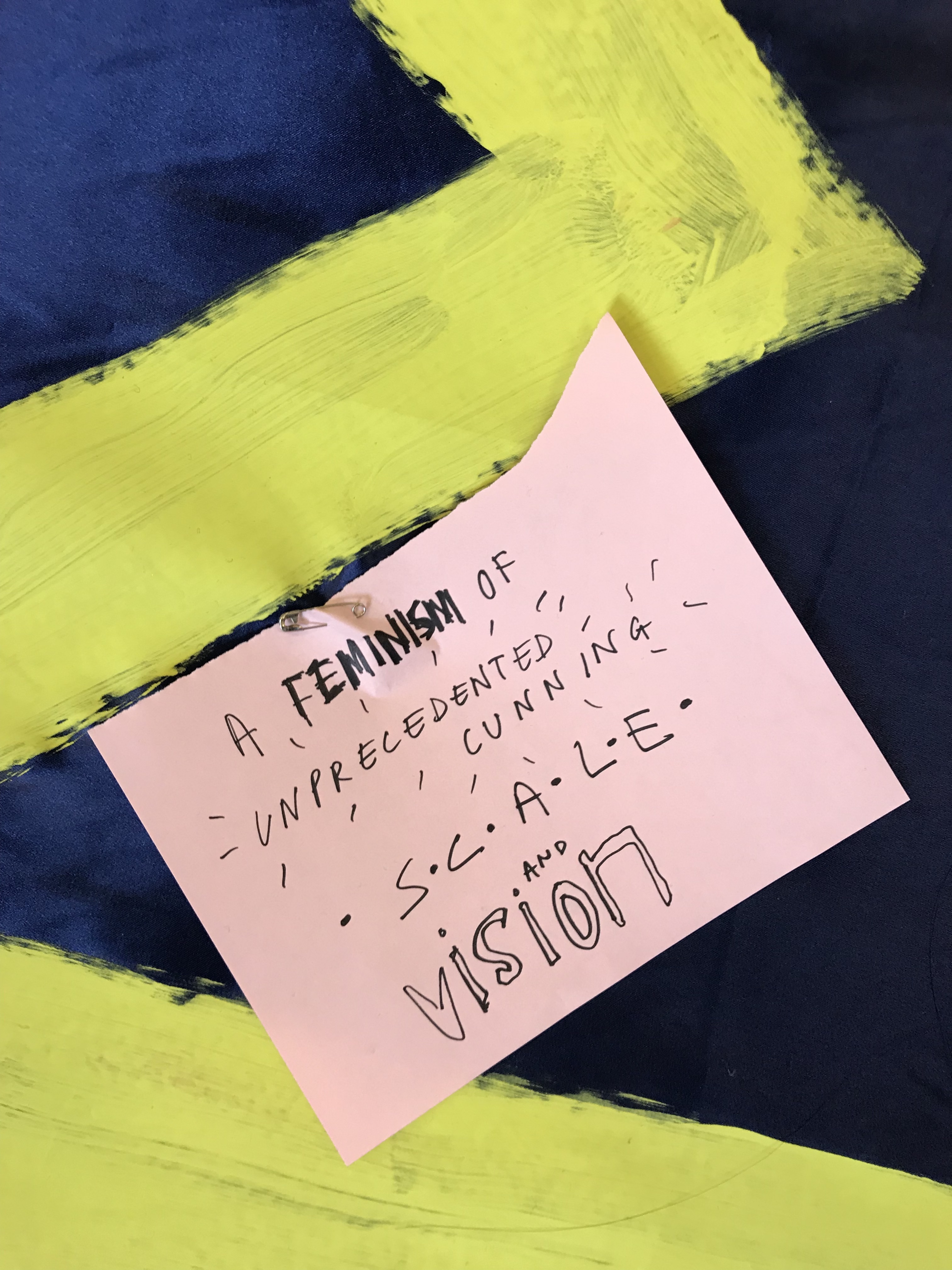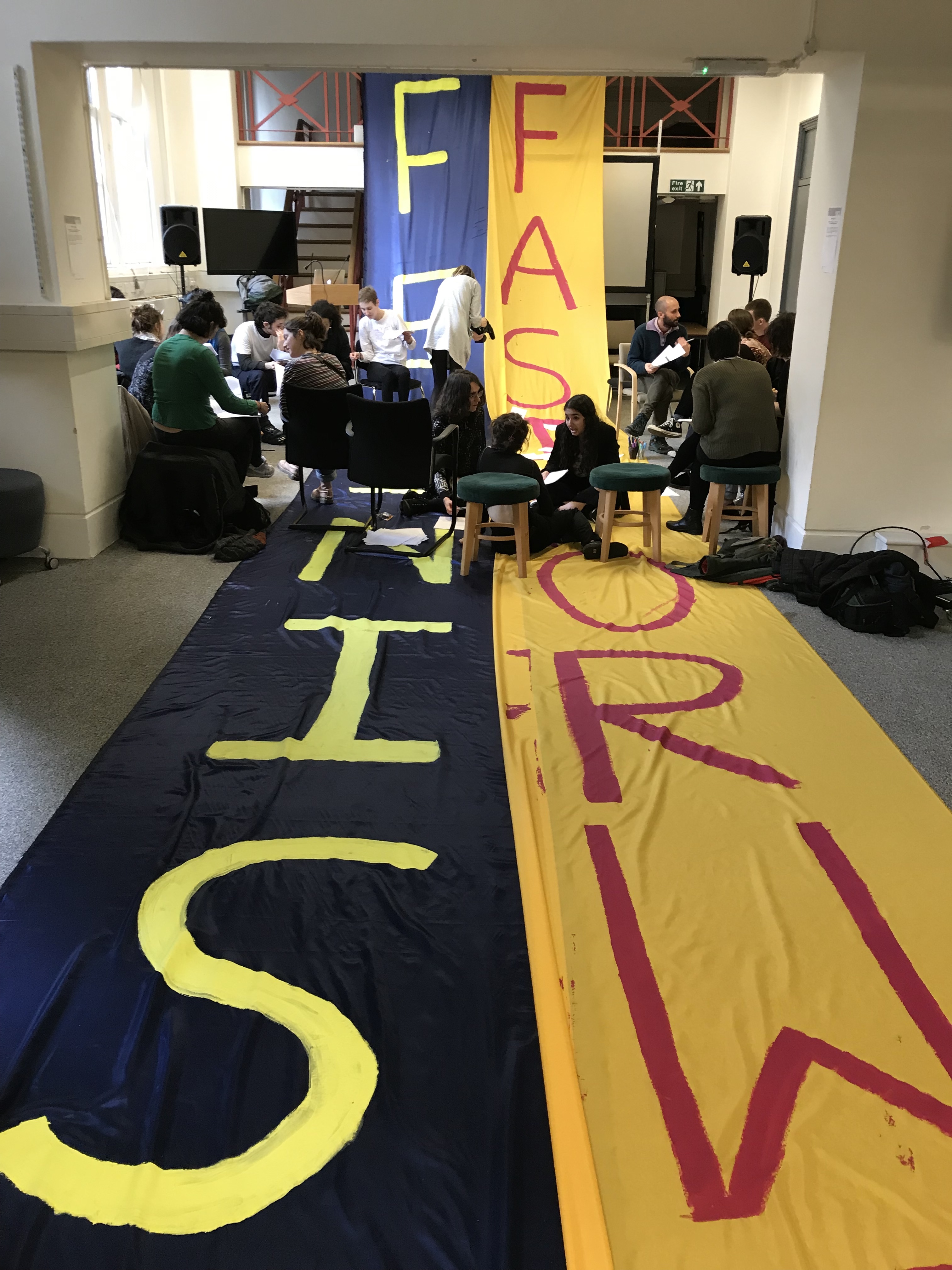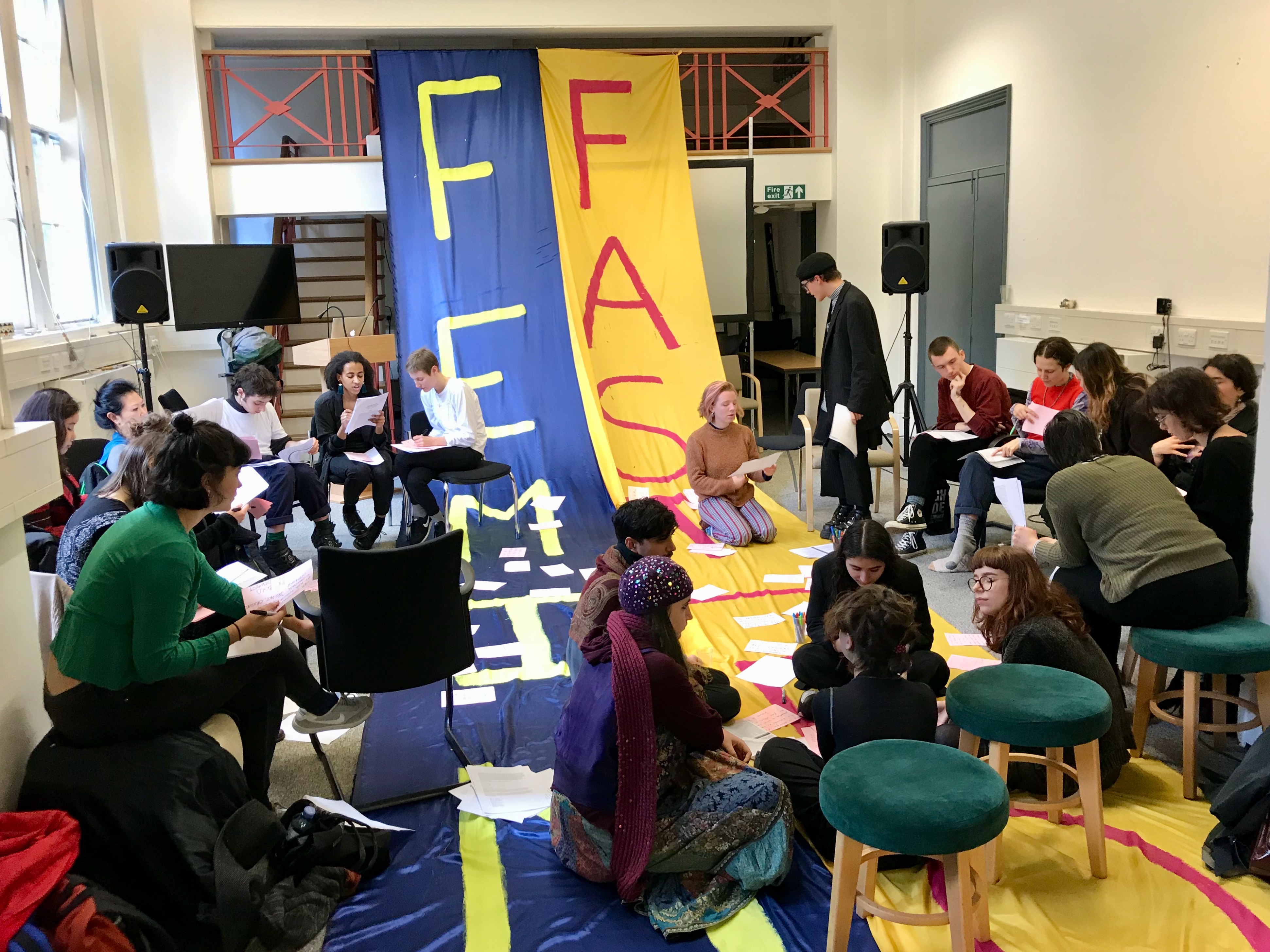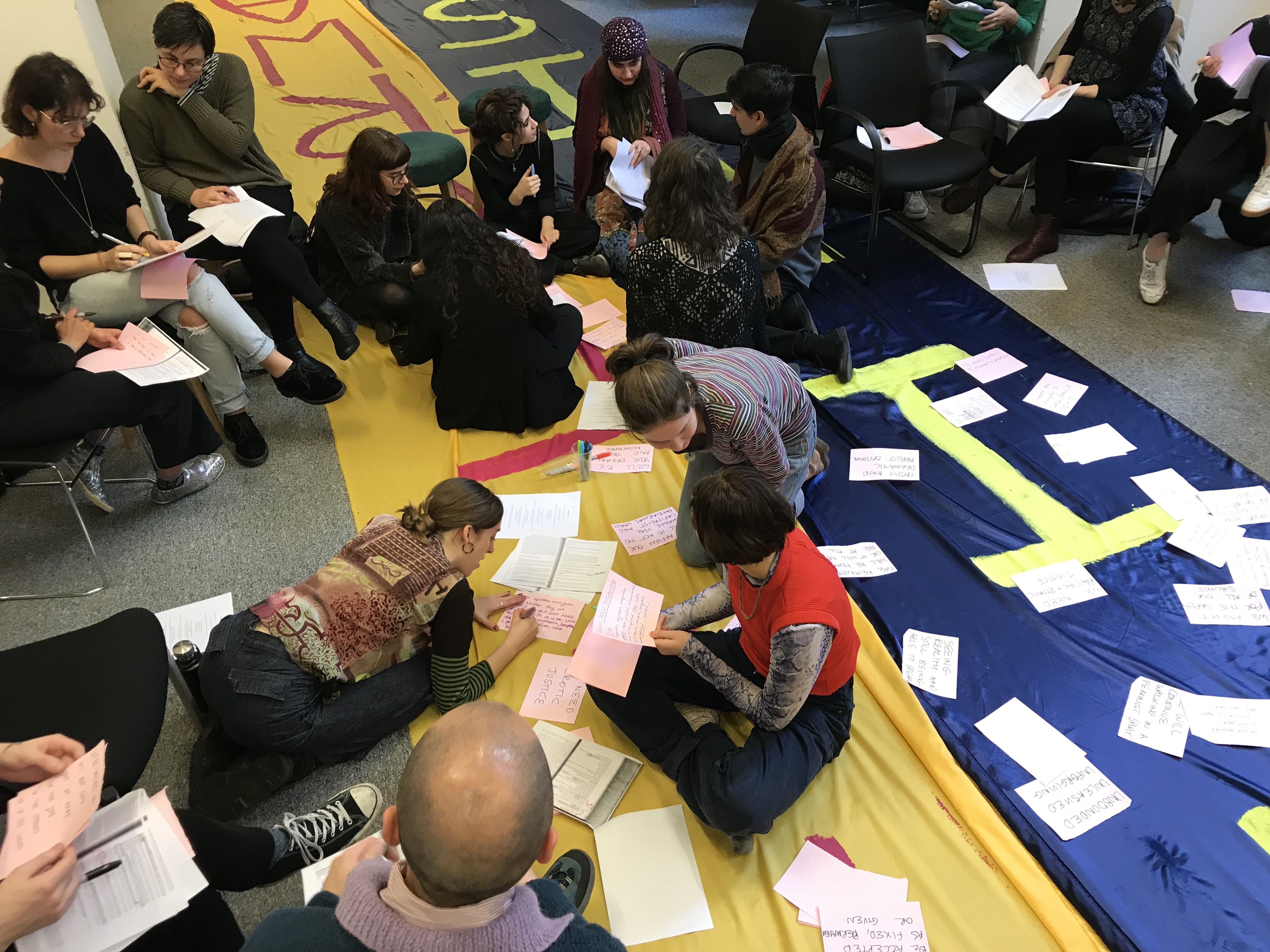Fast Forward Feminism: Manifesto Workshop
In February, we were invited to run a manifesto workshop by Fast Forward Feminism, a student-led festival that aimed to propose actions to resist what bell hooks calls the current ‘neo-colonial, white sumpremacist capitalist patriarchy.’ In the workshop, we took the first steps towards creating a manifesto together, and the text we produced was added to, revised and rebuilt through the variety of feminist ideologies explored during the festival.
A manifesto is an adventure in expression—a demand, a public declaration of aims, ideals, and desires. For the workshop, we’d made a composite manifesto—each stanza was comprised of an extract from a different feminist manifesto from the past 50 years. By extracting and manipulating existing texts, we tried to create a collective document outlining our hopes and aims for a reimagined feminist future. We began the workshop by reading it out loud, in chorus.
Reading these different manifestoes was disturbing and inspiring: it was disturbing to witness how women remain oppressed through sexism, racism, classism, colonialism, heterosexism, and ableism, but inspiring to witness, in these repeated tellings of injustices and injuries, that under every sort of political regime, in every era and possible set of circumstances, there has been feminist resistance. We learn from them about alternative ways of structuring our families and our communities, of describing citizens and supporting workers, of distributing resources and sharing burdens. Manifestoes are exercises in thinking collective life and imagining futurity and utopianism.
Our composite manifesto included extracts from the Combahee River Collective, a radical Black feminist organisation formed in 1974; an LGBTI Manifesto written in Nairobi in April 2010, linking the LGBTI movement to Pan-African struggles for liberation and challenging certain assumptions about the lack of resistance to homophobia on the continent; Sara Ahmed’s book Living a Feminist Life, and its Killjoy Manifesto, where Ahmed writes about the way in which manifestos ‘render perceptible a new order of ideas’; and Laboria Cuboniks’ Xenofeminist Manifesto (2015), which seeks to dismantle gender as a ‘grid for the asymmetric operation of power’.
Our collective reading was followed by an act of collective authorship: we handed round copies of 30 different feminist manifestoes and extracted our favourite lines, editing, adding, and combining demands from different feminist collectives/groups. This collective editing and rewriting reflected the ways in which feminist manifestoes not only inspire political action but are also the outcome of feminist actions—a diversity of voices, informed by experience and reflection and dialogue, come together to demand a different future.
BREAK // LINE
